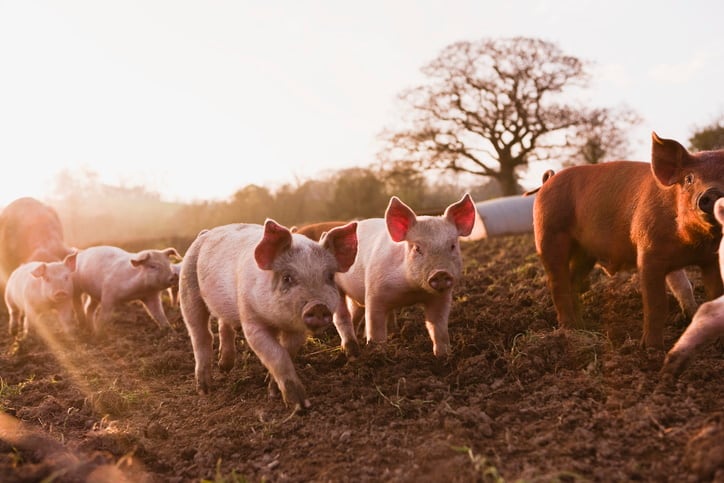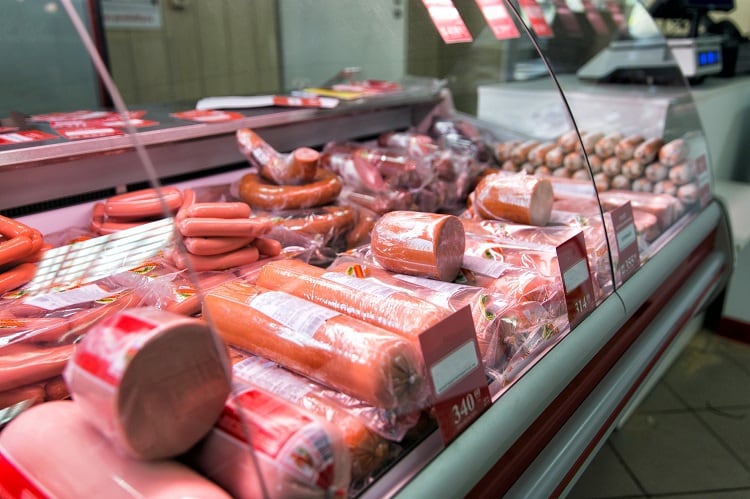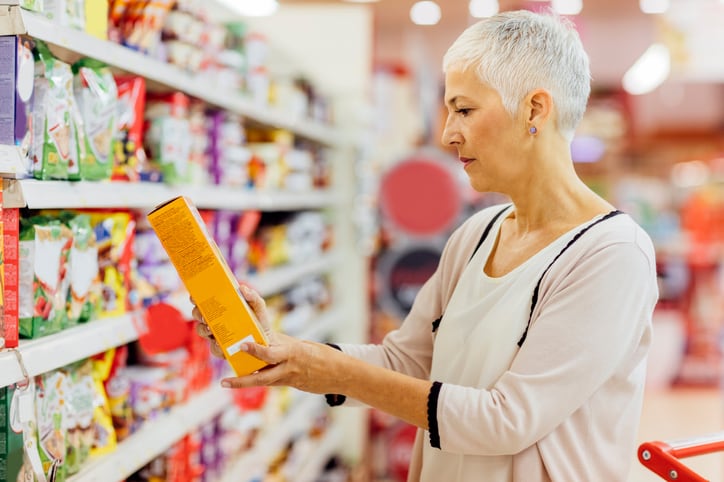Earlier this month, pork producer Danish Crown revealed ‘climate-controlled pig’ environmental signposting has been pulled from its retail products.
Danish Crown said the move followed a backlash that was caused by a ‘massive counter-campaign’ spear-headed by Greenpeace.
Danish supermarkets COOP, Lidl and Aldi announced that they would not sell ‘climate-controlled pig’ products after Greenpeace complained about the labelling and the campaign to the Consumer Ombudsman, accusing the company of greenwashing and misleading marketing.
Danish Crown should be ‘commended’ for withdrawing the label, said Greenpeace campaign manager for agriculture and forestry Kristine Clement. “Pork is and will be a climate-damaging product, and we are of course very happy that the consumer will no longer face this greenwashing in the fridge,” she said.
But Danish Crown believes it is vital that large food companies – including meat producers - are engaged in the transition towards climate friendly food. Farmers who are progressing this agenda need to be recognised and rewarded, the company insisted.
“We think it's a shame, because climate-controlled pigs were a way of communicating that the farmers who supply pigs to us are actively working to lower their CO2 footprint. We will lose the climate fight if large companies are not allowed to take part in it and communicate about the efforts. Our sustainability program is one of the most ambitious in the world, and if we are not allowed to talk about our climate roof, consumers do not have the opportunity to choose the more sustainable alternatives,” argued Astrid Gade Nielsen, communications director at Danish Crown.
Greenpeace is not the only group placing pressure on Danish Crown. The company is facing a lawsuit the Climate Movement and the Green Student Movement. Currently, the case sits before the district court in Randers, but since both Danish Crown and the two associations consider it a matter of principle, it must be decided whether it is moved to either the High Court – an option preferred by the associations – or the Maritime and Commercial Court, Danish Crown’s preference.
“We believe we have a good case,” Gade Nielsen said of the pending legal action. “At Danish Crown, our sustainability initiatives are based on the latest research in the field, and our initiatives are certified and verified by independent experts.”
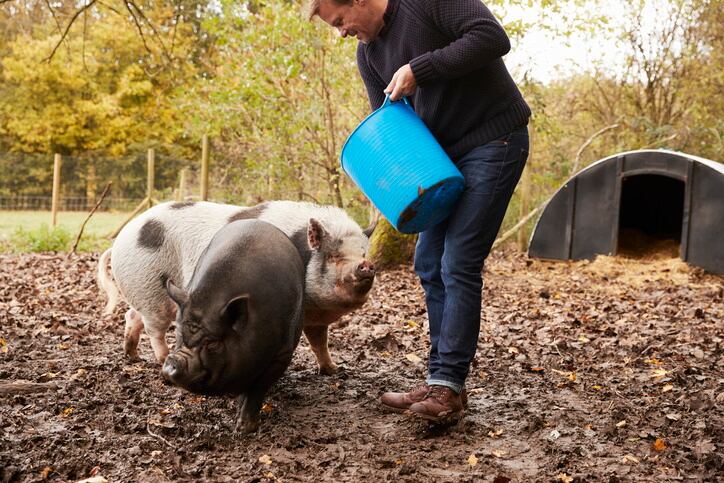
Even though it has been forced to back-track on the label, Danish Crown maintains that a large ‘middle’ of the population want to see ‘pragmatic’ solutions to the role food production plays in the climate crisis. These people, Gade Nielsen said, often want to eat meat – but they want to eat the most sustainable options available.
“We must continue to say that Danish pork is one of the least climate-affecting choices,” she claimed. “We will continue to talk about climate and meat, and we will continue to work to make Danish Crown the most sustainable producer of meat in 2030 and climate neutral in 2050. That is our mission, and it will not stop because we hit challenges.”
Climate impact ‘difficult for consumers to see’
The row takes place in the context of broader questions about the validity and trustworthiness of climate labelling.
Fresh research from the Danish Consumer Council demonstrates six out of ten consumers in the country think about the climate impact of their purchases but three out of four consumers find it difficult to see what climate footprint food actually has.
The participants in the survey were asked to rank eight foods according to their climate impact. Only two out of approximately 1,100 consumers were able to do this.
“When we consumers want to shop more climate-friendly, we generally know that we need to cut back on beef and food transported by air. But, as the study shows, it immediately becomes more difficult to assess what is most climate-friendly if we have to choose between liver pate, Danish chicken meat or a processed vegetable product such as hummus,” said Anja Philip, President of the Danish Consumer Council.
Philip believes that climate labels for ‘all food types’ could be an answer. It would need to be ‘easy to decode’ and allow consumers to make comparisons across categories, she suggested.
However, the question of credibility is ‘absolutely critical’. “We believe that the authorities must be responsible for the development and control of such a climate label, as it is also ultimately they who are responsible for protecting us consumers from so-called greenwashing,” the consumer advocate argued.
She also believes regulators could pull fiscal levers to ensure food prices reflect their climate impacts.
“Our study shows that Danish consumers want to take the climate into account when shopping in the supermarket. Therefore, it is necessary that they get the right tools so that the good intentions are brought to life,” she suggested.
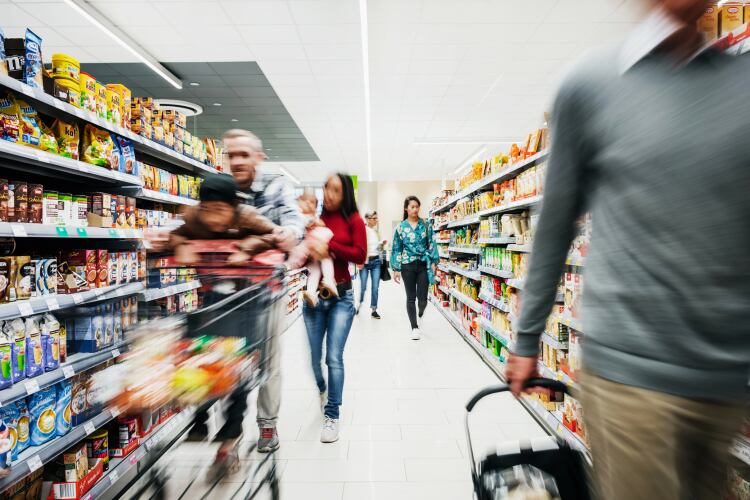
‘Too many green claims are used on the market’
Some of this confusion stems from the wide array of eco-claims that have made their way onto the market. This makes greenwashing a major concern for consumers, according to Pauline Constant of European consumer organisation BEUC.
“Greenwashing is bad for consumers. Many consumers are already making an effort to live more sustainably and buy more environmentally-friendly products. This is not easy, though. Too many green claims are being used on the market, with many of them unsubstantiated, misleading or dishonest. What does ‘CO2 neutral’ mean? How about ‘only with natural ingredients’? This creates confusion, making it hard for consumers to identify sustainable products and services,” she told us.
BEUC would also like regulators to step in and fill the breach. The pan-European consumer group is backing a ‘pre-approval’ system established for environmental claims, similar to the EU Health Claims system that is overseen by food safety watchdog EFSA.
“There’s certainly a strong need to weed out the jungle of green claims consumers are currently lost in. In our view, only the reliable environmental claims should be able to end up on supermarket shelves so only the companies whose products are truly green are rewarded,” Constant concluded.

